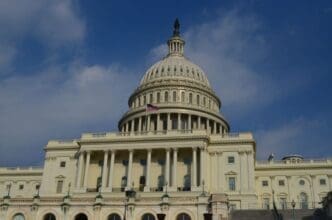A federal judge in Massachusetts is set to resume hearings on a lawsuit challenging the administration’s cuts that have alarmed the scientific community. The new policy would strip hundreds of millions of dollars intended for indirect expenses related to researching critical illnesses such as Alzheimer’s, cancer, and heart disease.
These cuts were temporarily blocked by U.S. District Judge Angel Kelley earlier this month. The legal action, initiated by a coalition of 22 states along with organizations representing universities and research institutions, argues that the move is illegal. They highlight bipartisan congressional actions during President Trump’s first term that prohibited such measures.
The NIH, a primary funder of biomedical research, allocates funds covering both direct costs, like salaries, and indirect costs, such as administrative and operational expenses. These include essential services like electricity, waste disposal, and safety compliance. The disputed policy aims to cap indirect costs at 15%, affecting both ongoing and new grants, a reduction that could save $4 billion annually.
Research institutions argue that indirect costs are much more than mere overheads. For example, Johns Hopkins University officials have warned that the cutbacks would necessitate significant reductions in research projects, with potentially 600 ongoing NIH-funded studies facing threats to their continuation.
The lawsuit also points to broader economic impacts, with the University of Florida projecting layoffs for critical research staff and the potential halting of significant research facility projects in Detroit, affecting nearly 500 anticipated jobs.
Conversely, the Trump administration maintains that NIH has the authority to adjust grant terms post-award and argues that plaintiffs have not demonstrated they would suffer irreparable harm. The administration dismisses the indirect costs as ‘overhead’ while researchers counter this definition.
The decision pending in Judge Kelley’s courtroom could extend the temporary restraining order against the cuts, affecting future NIH policy and potentially impacting research funding strategies across the United States.
The outcome of this legal battle will have significant implications for the future of medical research funding. As stakeholders await Judge Kelley’s decision, the tension between administrative cost-saving and the necessity of robust research support remains a central issue of debate.








